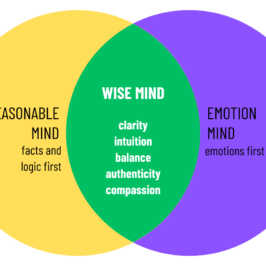Someone you love isn’t getting things done, not maintaining relationships and the like. Is it laziness? Or apathy? Or could it be something far more serious, a psychological condition called avolition. In this article, we define laziness, explain apathy and understand what avolition is.

Laziness
Laziness is characterized by a reluctance or unwillingness to work or exert effort. Individuals who are lazy tend to lack motivation or desire to complete tasks. They may exhibit a sense of indifference, boredom, or disinterest in the activities that require effort. This can often result in procrastination and a lack of productivity.
There can be various causes and factors contributing to laziness. Some individuals may experience laziness due to a lack of perceived reward or satisfaction in the tasks they are expected to do. Others may feel overwhelmed or burnt out, leading to a lack of motivation. Additionally, certain mental health conditions, such as depression or anxiety, can also contribute to laziness.
It is important to note that laziness is not permanent or defining. With proper understanding and strategies, individuals can overcome laziness and regain motivation in their daily activities.
Apathy
Apathy is a state of indifference or lack of interest in activities, events, or relationships. Individuals who are apathetic may show a disengaged attitude, lack of motivation, and a general sense of emotional detachment. They may exhibit symptoms such as decreased initiative, reduced enthusiasm, and a lack of concern for their own well-being or the well-being of others. It is important to recognize that apathy is not the same as laziness, as it often stems from psychological or emotional factors rather than a simple reluctance to work.
The impact of apathy on mental and emotional well-being
Apathy can have a significant impact on an individual’s mental and emotional well-being. It can lead to feelings of hopelessness, boredom, and a lack of fulfillment in life. The inability to experience joy or enthusiasm can result in a decreased quality of life and strain on personal relationships. Moreover, apathy may be a symptom of an underlying mental health condition such as depression or certain neurological disorders. It is essential to address apathy and seek appropriate support to improve one’s overall well-being.
Avolition
Understanding avolition and its manifestation
Avolition refers to a loss of motivation or the inability to initiate and complete tasks. Individuals with avolition may struggle with basic activities such as personal hygiene, work or school-related tasks, and social engagement. They may lack the drive or interest to pursue goals and may feel a general sense of apathy towards life. Common symptoms of avolition include low energy levels, difficulties in concentrating, and a lack of enthusiasm. It is important to recognize avolition as a symptom rather than a personality trait, as it can be a sign of an underlying mental health condition.
The relationship between avolition and mental health disorders
Avolition is often associated with mental health disorders such as schizophrenia, depression, and bipolar disorder. In individuals with schizophrenia, avolition is a negative symptom that can significantly impact their ability to function and engage in daily activities. In depression, avolition may manifest as a lack of interest in previously enjoyable activities and a loss of pleasure. Similarly, in bipolar disorder, avolition can occur during depressive episodes. Understanding the relationship between avolition and mental health disorders is crucial for proper diagnosis and treatment.
What are the differences?
- Laziness is often a temporary state of not wanting to put in effort, whereas apathy is a persistent lack of motivation.
- Laziness is a choice, while apathy is often involuntary and related to mental health conditions.
- Laziness is more common among individuals without underlying mental health issues, while apathy is a symptom seen in various mental health disorders.
By understanding the differences between laziness and apathy, it becomes easier to identify if there is a need for professional help or if a person simply needs a motivational boost to overcome laziness. It’s important to address and treat any underlying mental health conditions associated with apathy through therapy and medication if necessary.
Differentiating between apathy and avolition
Apathy and avolition share similarities in terms of a lack of motivation, but they are distinct concepts. Apathy is characterized by a loss of interest, energy, and drive, often seen in individuals with mental health conditions. Avolition, on the other hand, refers to a difficulty or inability to initiate and complete goal-directed behaviors, which is a symptom commonly observed in schizophrenia. While both apathy and avolition can result in a lack of productivity and achievement, their underlying causes and manifestations differ.
The psychological implications of apathy and avolition
Apathy and avolition can have significant psychological implications on individuals. Apathy often indicates an underlying mental health condition such as depression or dementia, and addressing these conditions is crucial for overall well-being. Avolition is particularly relevant in the context of schizophrenia, as it can impede individuals’ ability to engage in daily activities and pursue their goals. Recognizing the significance of apathy and avolition in psychological assessments can lead to appropriate interventions, such as therapy and medication, aimed at improving motivation and functioning in affected individuals.
Seeking Help for Avolition
Recognizing when avolition requires professional intervention
When individuals experience persistent avolition, professional help may be necessary if their lack of motivation significantly impacts their daily lives. Signs that indicate professional intervention may be needed include:
- Difficulty completing basic self-care tasks, such as grooming or eating
- Isolation and avoidance of social interactions
- Loss of interest or pleasure in activities once enjoyed
- Decline in occupational or academic functioning
Treatment options and therapies for avolition
When seeking help for avolition, individuals can explore several treatment options and therapies:
| Treatment Option | Description |
| Psychotherapy | Therapy sessions with a mental health professional can help individuals address underlying issues contributing to avolition, such as depression or trauma. |
| Medication | In certain cases, medication may be prescribed to manage symptoms of avolition. Antidepressants or stimulant medications may be considered, depending on the underlying cause. |
| Lifestyle changes | Engaging in regular physical activity, maintaining a balanced diet, and practicing stress-reducing techniques can contribute to overall well-being and motivation. |
| Support groups | Participating in support groups or group therapy can provide a sense of community and understanding, as well as accountability in working towards overcoming avolition. |
It is important to consult with a qualified healthcare professional to determine the most appropriate course of action and treatment plan for managing avolition.
- Avolition refers to a lack of motivation or inability to initiate and persist in goal-directed activities.
- Persistent avolition can significantly impact daily life and may require professional intervention.
- Signs that indicate professional help may be necessary include difficulty completing basic self-care tasks, isolation, loss of interest in activities, and decline in functioning.
- Treatment options for avolition include psychotherapy, medication, lifestyle changes, and support groups.
Encouragement to seek personal growth and improve mental well-being
Seeking help for avolition is an important step towards improving one’s mental well-being and overall quality of life. It is essential to reach out to mental health professionals who can provide guidance, support, and appropriate treatment options. Through therapy, medication, lifestyle changes, and support groups, individuals can work towards regaining their motivation and finding joy in everyday activities. Remember, recovery is a journey, and with the right support and resources, positive change is possible.






